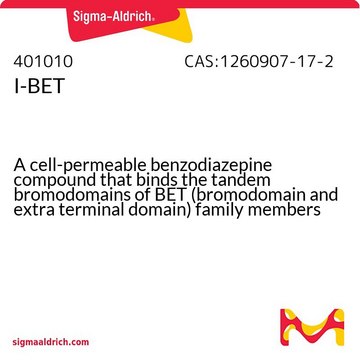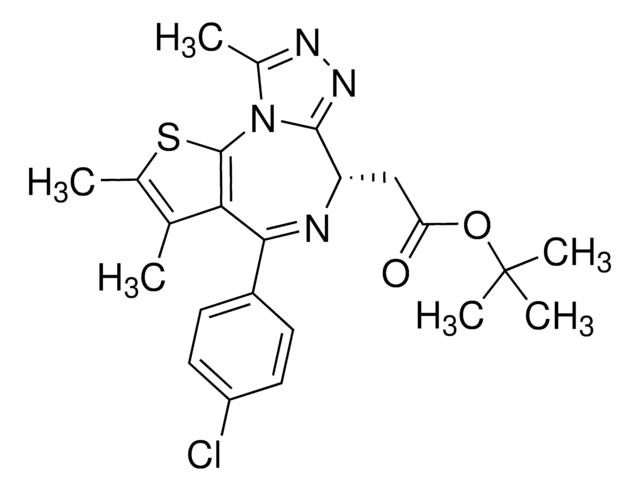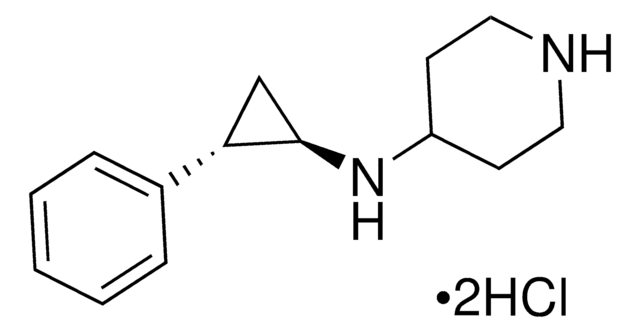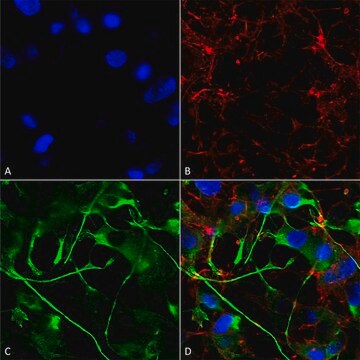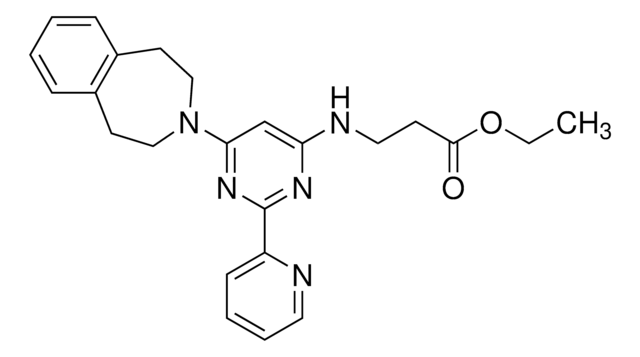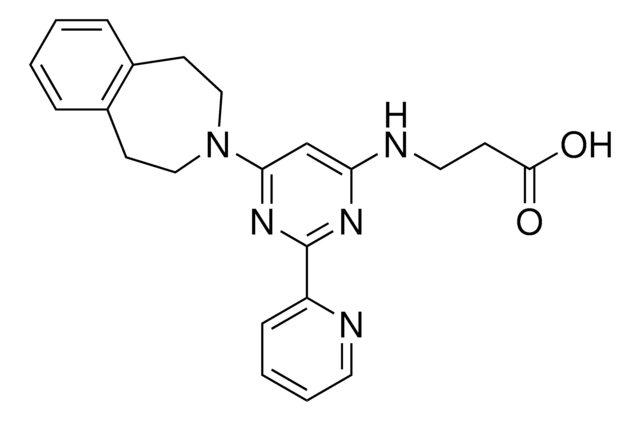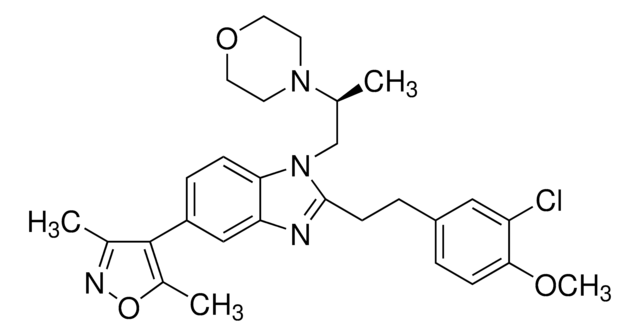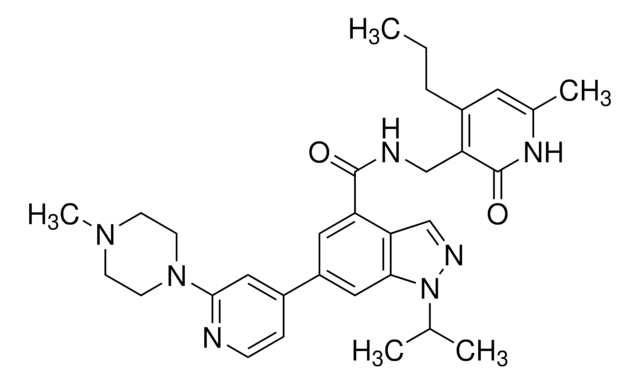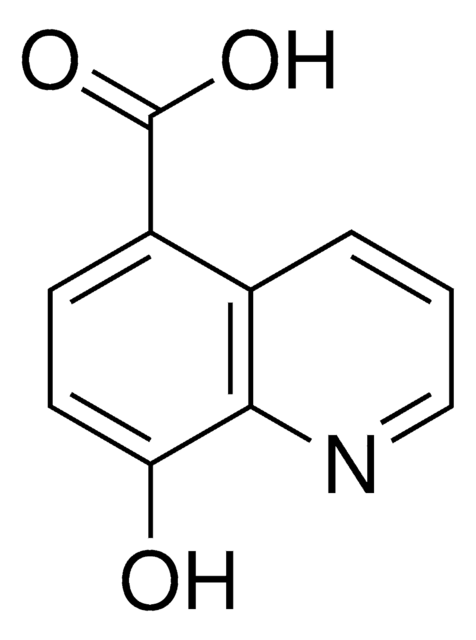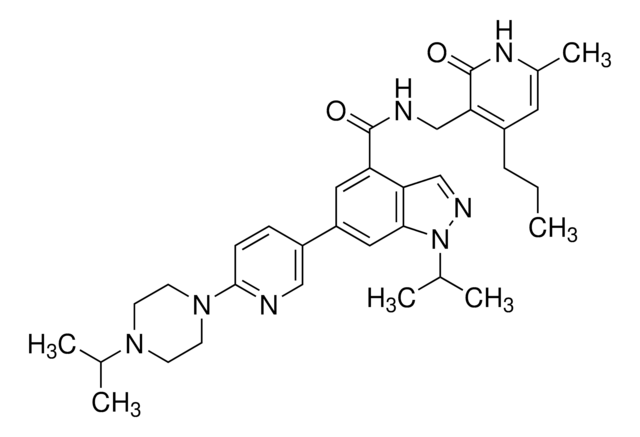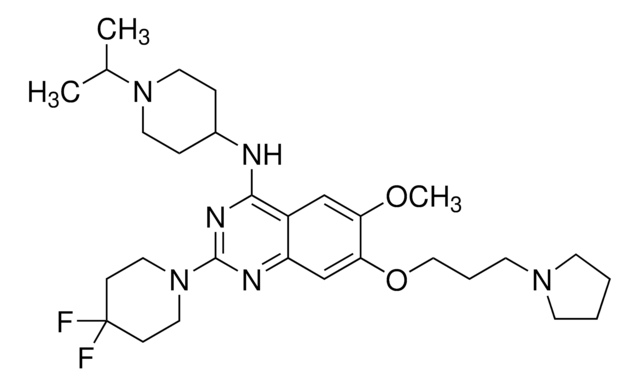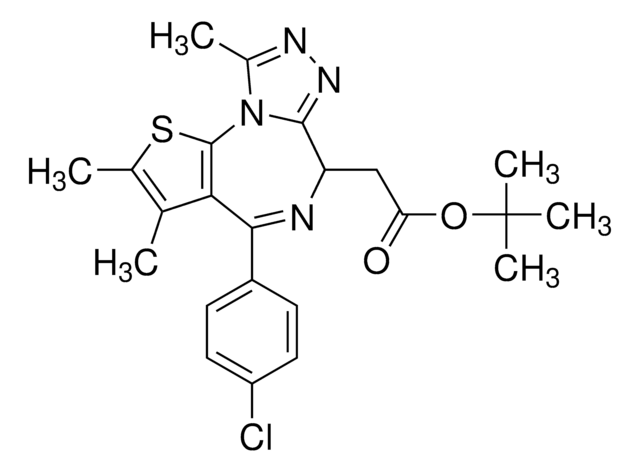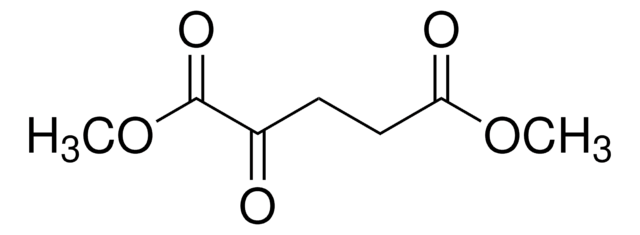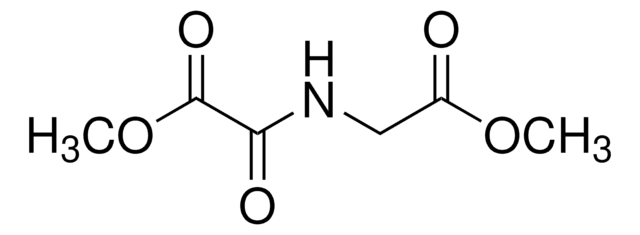SML0701
GSK-J4
≥98% (HPLC)
Sinónimos:
Ethyl 3-((6-(4,5-dihydro-1H-benzo[d]azepin-3(2H)-yl)-2-(pyridin-2-yl)pyrimidin-4-yl)amino)propanoate
About This Item
Productos recomendados
Quality Level
assay
≥98% (HPLC)
form
powder
storage condition
desiccated
color
white to beige
solubility
DMSO: 20 mg/mL, clear
storage temp.
2-8°C
SMILES string
O=C(OCC)CCNC1=CC(N2CCC(C=CC=C3)=C3CC2)=NC(C4=CC=CC=N4)=N1
InChI
1S/C24H27N5O2/c1-2-31-23(30)10-14-26-21-17-22(28-24(27-21)20-9-5-6-13-25-20)29-15-11-18-7-3-4-8-19(18)12-16-29/h3-9,13,17H,2,10-12,14-16H2,1H3,(H,26,27,28)
InChI key
WBKCKEHGXNWYMO-UHFFFAOYSA-N
Application
Biochem/physiol Actions
To learn about other SGC chemical probes for epigenetic targets, visit sigma.com/sgc
Features and Benefits
Other Notes
Related product
Storage Class
11 - Combustible Solids
wgk_germany
WGK 3
flash_point_f
Not applicable
flash_point_c
Not applicable
Certificados de análisis (COA)
Busque Certificados de análisis (COA) introduciendo el número de lote del producto. Los números de lote se encuentran en la etiqueta del producto después de las palabras «Lot» o «Batch»
¿Ya tiene este producto?
Encuentre la documentación para los productos que ha comprado recientemente en la Biblioteca de documentos.
Los clientes también vieron
Contenido relacionado
Interrogation of protein pathways is a foundational part of drug discovery research and drug development. Explore more about protein pathway analysis, including chemical library screening, investigating protein and enzyme activity, and modulating protein pathways by using small molecules.
We offer a variety of small molecule research tools, such as transcription factor modulators, inhibitors of chromatin modifying enzymes, and agonists/antagonists for target identification and validation in gene regulation research; a selection of these research tools is shown below.
Nuestro equipo de científicos tiene experiencia en todas las áreas de investigación: Ciencias de la vida, Ciencia de los materiales, Síntesis química, Cromatografía, Analítica y muchas otras.
Póngase en contacto con el Servicio técnico